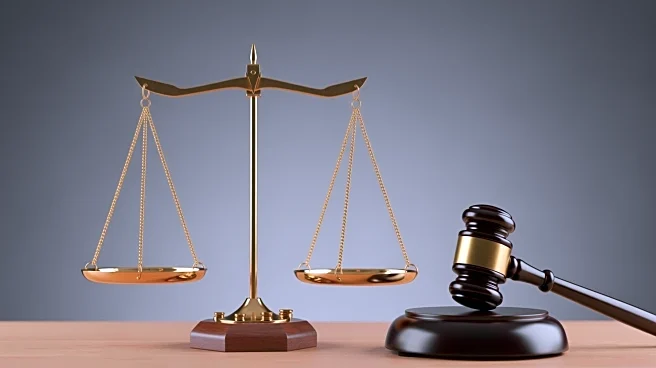What's Happening?
The Michigan House of Representatives has passed a bill aimed at curbing 'strategic lawsuits against public participation' (SLAPP suits). These lawsuits are often filed by business or government interests to silence dissent or criticism. The bill allows
defendants to request an expedited hearing to determine if a case should proceed, potentially dismissing it early in the legal process. State Representative Kara Hope, the bill's sponsor, emphasized that the bill provides an 'early off ramp' for defendants, reducing the financial and time burdens associated with lengthy litigation. The bill received bipartisan support and includes provisions to apply its protections to government entities, businesses, and individual plaintiffs, while excluding business disputes and civil rights claims.
Why It's Important?
The passage of the anti-SLAPP bill is significant as it strengthens protections for individuals and groups facing legal actions intended to suppress their free speech and protest rights. By enabling swift dismissals of meritless lawsuits, the bill aims to prevent the misuse of the legal system as a tool for intimidation. This development is crucial for maintaining a robust public discourse and ensuring that individuals can express dissent without fear of costly legal repercussions. The bill's bipartisan support indicates a shared recognition of the need to safeguard free speech against powerful interests that might exploit legal processes to silence opposition.
What's Next?
The bill now moves to the Michigan Senate for consideration. If passed, it will become law, providing a legal framework for defendants to challenge SLAPP suits effectively. Stakeholders, including civil rights groups and free speech advocates, are likely to monitor the Senate's actions closely. The bill's progress may also prompt discussions in other states about adopting similar measures to protect free speech. Additionally, businesses and government entities may need to reassess their litigation strategies in light of the potential new legal landscape.
Beyond the Headlines
The anti-SLAPP bill highlights broader ethical and legal considerations regarding the balance between free speech and the right to seek legal redress. It raises questions about the role of the legal system in protecting individual rights versus serving as a tool for powerful entities. The bill's passage could lead to long-term shifts in how litigation is approached, encouraging more responsible use of legal actions and fostering a culture of open dialogue and accountability.















